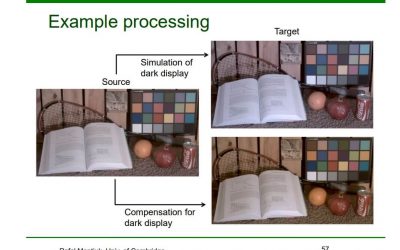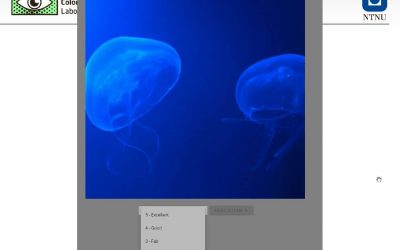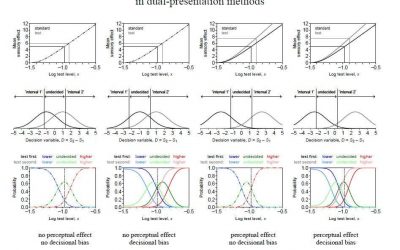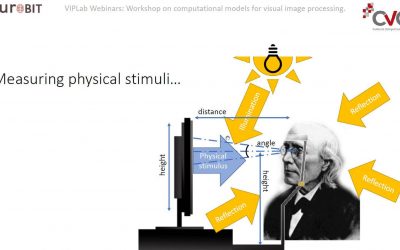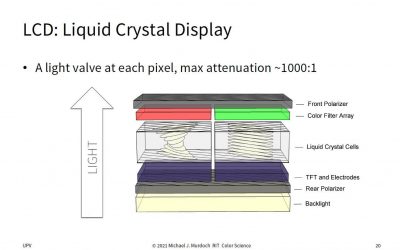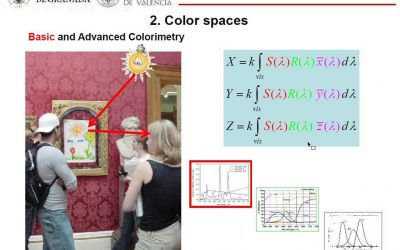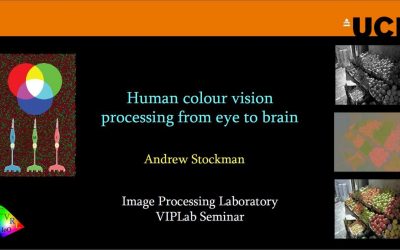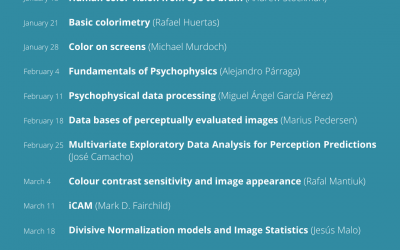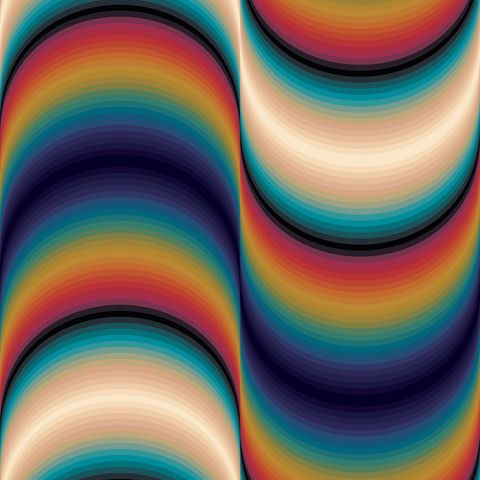
IMaLeVICS: New VIPLab project
Interpretable Machine Learning for Vision, Imaging, and Color Sciences
The objective of IMaLeVICS is to use interpretable machine learning methods to address various issues related to vision, imaging, and color sciences. We have two goals. Firstly, we aim to obtain systems that can solve specific problems in each of these fields. Secondly, we aim to analyze what these systems have learned to interpret the knowledge extracted from the data and determine whether this knowledge can be incorporated into current scientific models that address the corresponding problems.
VISUAL IMAGE PROCESSING LABORATORY
A research project on computational vision science
The main objective of the interdisciplinary group that makes up VIP Lab (Visual Image Processing Laboratory) is to contribute to a better understanding of how digital images are perceived by the human visual system. To begin, contributing with data from psychophysics on how images are perceived by the visual system, secondly, addressing how to represent this new knowledge with computational models, to finish using these models to approach the improvement/optimization of the visual quality in different applications and image processing tasks.


Recent availability of image capturing and displaying devices in increasing image importance for both home and scientific use. Particularly important is image perceptual quality, a matter on which an intensive active research is being carried out in many centers around the globe. The VIP Lab project is devoted to develop research on image perception and, in the long term, establish a reference research center in the matter.
The research group consists of professionals that combine experience in vision science, color science, image processing, psychophysics, and mathematical modeling.

LATESTS RESEARCH AND PUBLICATIONS
Webinar: Colour contrast sensitivity and image appearance
by Prof. Dr. Rafał K. Mantiuk An image shown on a dark display will appear differently than an image shown on a bright display. The image appearance will also differ with the viewing distance, ambient light and the age of an observer. To improve the experience of...
Webinar: Multivariate Exploratory Data Analysis for Perception Predictions
by Prof. José Camacho Do you have complicated data? Difficult to understand? With thousands of variables/observations? Missing data? Time series? Multiple sources? Big Data? … There is a bunch of Machine Learning (ML) methods that can do difficult tasks for us (like...
Webinar: Data bases of perceptually evaluated images
by Prof. Marius Pedersen We will start the presentation with a short introduction to the most common techniques for carrying out subjective image quality experiments, as well as introducing their advantages and disadvantages. Further, a tool (QuickEval) to carry out...
Webinar: Psychophysical data processing
by Prof. Dr. Miguel Ángel García Pérez The psychometric function describes how performance on a perceptual task varies with stimulus magnitude. Typically, the data follow a sigmoidal path and the analysis involves fitting a convenient and largely arbitrary function to...
Webinar: Fundamentals of Psychophysics
by Prof. Dr. Alejandro Parraga Psychophysics is the branch of experimental psychology concerned with the relationship between a given physical stimulus and the sensation elicited by that stimulus. It has two remarkable roles, to describe and specify the sensory...
Webinar: Color in Displays
by Prof. Michael Murdoch Displays are ubiquitous in the modern visual environment, and they require high image quality and reliable color reproduction. This lecture will connect the basics of color perception to the physics and operation of display technologies...
Webinar: Fundamentals of colorimetry
by Prof. Dr. Rafael Huertas In this webinar we will review the historic development of some of the most important color spaces: CIE RGB and XYZ, LMS, CIELAB and CIELUV, through the development of a system of photometry and a system of colorimetry. Afterward color...
Webinar: Human colour vision processing from eye to brain
by Prof. Dr. Andrew Stockman The seminar provides an overview of human colour vision and visual processing from the photoreceptors to high-level colour perception and cognition. Topics will include the photoreceptors, univariance and the trichromacy of human color...
First Webinars
First webinars VIP Lab From January to March we have enjoyed, practically every Thursday, we have enjoyed 11 VIPLab webinars like the ones we have summarized below. Each one of them has focused on a different topic that complements the project's researcher training....


